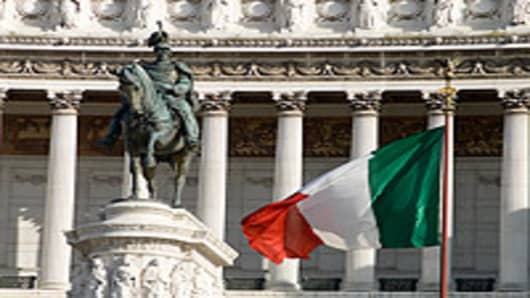Italy will put pressure on European Union leaders to look more toward efforts to boost growth in the euro zone rather than at austerity measures designed to rein in debt, Italian Industry Minister Corrado Passera told CNBC.
Since the financial crisis hit, policymakers in Brussels have called on euro zone member states with big deficits and high debt to cut government spending, but deep recessions and soaring unemployment in periphery countries have sparked criticism at the measures, and street protests have intensified.
Italian Prime Minister Mario Monti said on Saturday that the worst of the crisis in the euro zone has passed, and urged China to invest in the country, just as several thousand people protested in Milan against austerity.
Italy recognized that "fiscal consolidation is a must," and the government pushed reforms such as pension reform and fiscal measures in the real estate sector at the start of its term, according to Passera.
"But at the same time, if we don’t guarantee the medium-term sustainability through the right level of growth, we are [back] at the beginning of the problem," Passera said.
Passera said the Italian government has introduced steps to boost growth, such as the simplification of labor regulations.
"It’s difficult, but we have to work on all the levers at the same time and guarantee both austerity in terms of fiscal consolidation and reforms for growth," Passera said.
Last Friday, euro zone finance ministers agreed to boost the so-called firewall—a combination of the area's two main rescue funds that's designed to prevent the spreading of the debt crisis—to a total of around 800 billion euros ($1.06 trillion).
Passera said the decision was sending the right signal to markets, which had been on tenterhooks for much of the duration of the euro zone debt crisis as EU leaders were seen as doing too little too late to stop contagion.
"We have done a very important step because the stronger the firewalls are, the less likely is the use of the firewalls because markets want to be guaranteed that in case of need, firewalls are strong enough and what has been decided is certainly a step in the right direction," he said.


